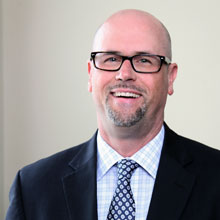You have /5 articles left.
Sign up for a free account or log in.
When Hocking College realized that it needed to step up its online learning offerings "to remain competitive" -- and that the free version of Moodle it was using as its learning management system wasn't up to the task -- President Betty Young didn't turn to Blackboard or Pearson for help.
Instead, she contracted with the International Institute for Innovative Instruction at Franklin University, another Ohio institution where she once worked, to use its homegrown LMS and to purchase several general education courses the two-year college could adapt for its own audience.
Karen Miner-Romanoff made a similar call last year when she was put in charge of the Center for Academic Excellence and Support at New York University's School for Professional Studies and asked to introduce 14 new online graduate programs on a tight timetable.
"I realized that my four instructional designers and one educational technologist couldn't develop all those in such a short time," Miner-Romanoff said. "I could have gone anywhere" for the operational and design help she needed, but she turned to Franklin, where she had been associate provost until 2017. "I never hesitated for a moment."
 The number of companies offering online program management services, learning management systems and other technology and services to help colleges build and operate academic programs is large and growing (despite some recent modest signs of contraction). Many colleges use multiple providers, and those that go it alone or build their own technologies typically have big endowments (think Harvard and MIT's edX) or major national ambitions, like Southern New Hampshire University.
The number of companies offering online program management services, learning management systems and other technology and services to help colleges build and operate academic programs is large and growing (despite some recent modest signs of contraction). Many colleges use multiple providers, and those that go it alone or build their own technologies typically have big endowments (think Harvard and MIT's edX) or major national ambitions, like Southern New Hampshire University.
Franklin is an outlier. It got into online education before most commercial learning technologies were available, so it built its own LMS, BlueQuill, and technology infrastructure, the International Institute for Innovative Instruction, to serve its thousands of online, mostly adult students.
In recent years, I4, as the institute is known in shorthand, has begun working with other colleges and universities looking for outsourced technology and curriculum development help. Officials at Franklin demur when a reporter asks if they see I4 as a competitor to online program management or LMS companies, saying they want to find colleges that want a "partner" rather than a mere "enabler." But the institute bears more than a passing resemblance to those companies.
The Mother of Invention
Founded at the dawn of the 20th century under the aegis of the YMCA in Columbus, Franklin has long focused on educating adult students, and it was a relatively early mover into internet-based education, putting its first classes online in 1997.
Blackboard was being incubated at Cornell University at that time, and Sakai was just getting started, too. So Franklin had little choice but to build its own technology to deliver its education to adults who couldn't come to its campus, says Patrick Bennett, vice president of the institute and global operations at Franklin. "We were born out of a collision of necessity and some really good resources that existed in our organization."
Franklin officials decided that the university's target audience of adult students would benefit most from a standardized approach to the curriculum, and the only way to ensure that (especially with an adjunct-heavy faculty) was with a strong centralized unit focused on instructional design.
Christi Cabungal, chief of staff and senior vice president for administration at Franklin, said that as often happens with such centralized approaches, some faculty members at the time pushed back against the loss of curricular control. But the "strong-willed" president then, the late Paul Otte, "did what a lot of smart leaders do," Cabungal said: "found faculty members who were receptive to change" to take the lead, and "pushed forward."
Franklin served 11,000 online students at its peak, and Cabungal says the university has poured "millions of dollars" into developing features for BlueQuill, which Bennett says has been developed with Franklin's students in mind but benchmarked against LMS market leaders such as Canvas, Blackboard and D2L. (At one point, Franklin paid the $10,000 entry fee to join Sakai's open-source network, but the university considered its own technology to be superior.)
Over the 20 years Franklin has been online, it has steadily expanded its course offerings, adding its first master's degrees in 2012 and first doctoral programs in 2016. The institute's team of eight full-time instructional designers, working with assessment specialists, librarians and faculty development experts, revise the technology as they build and update courses for Franklin.
"The fact that we're in a university means that we're constantly responding to the things our faculty and students need" and building those into the software, said Joel Gardner, executive director of design and assessment at I4.
Not long ago Franklin instructors realized they were encountering more and more evidence of student instability, Bennett said. So working with Franklin's student services office, they built into BlueQuill a button an instructor could push anytime he or she believes a student is at risk, immediately notifying the student services unit. "That's another innovation that would have been impossible if we'd gone with a commercially available system," he said. "If there's a need, and it's important, we can make it happen in a matter of weeks."
Like many colleges and universities that moved early into online education -- like Marylhurst University, which closed this spring, and Excelsior College, which has struggled in other ways -- Franklin has lost enrollments amid a "dramatic increase in competition" from better-known national and regional players, says Cabungal.
While enrollments have stabilized (at about 6,500), Franklin has sought to leverage other strengths to draw revenue. It has helped to create what it says is the first American M.B.A. program in Oman, with the Modern College of Business and Science, for instance.
But I4, which Cabungal describes as "highly net positive, generating many millions of dollars," is chief among them.
Partnerships Near and Far
Franklin began working with other colleges "by happenstance," Bennett says. Other colleges would find out about its instructional designers and ask to learn more, and that sometimes "bloomed into actual clients," he said.
But in 2012, the university got connected to an ambitious pet project in which Saudi Arabia's former king sought to build a digital institution, Saudi Electronic University. I4 build the first two courses, in computer literacy and basic mathematics, and that arrangement has expanded to the point that Franklin has now built much of the curriculum for the 25,000-student institution, online and at 11 regional centers.
 "That first major client caused us to dig deep and build a machine that can build content, build in assessment and evaluate curricular quality based on national norms and standards," Bennett said.
"That first major client caused us to dig deep and build a machine that can build content, build in assessment and evaluate curricular quality based on national norms and standards," Bennett said.
Franklin has begun deploying the combination of technology products and content development with a range of higher education, nonprofit and corporate clients, usually about a dozen at a time. The relationships depend on what the individual entity wants, Bennett says, including content creation, faculty development and training, instructor staffing, and assessment.
Hocking College, which is located about an hour from Franklin, already had a relationship with the four-year university because of its Community College Alliance, in which many students complete their bachelor's degrees at Franklin. When an internal analysis at Hocking showed that the college needed to upgrade its online offerings for its existing students (and the technology to deliver them), Young, the president, chose Franklin.
"We took a lot of things into account, including price, but it was really about the robustness of their program," she said. "As a smaller vendor, they were more responsive to any recommendations we would have about improvements." Among other things, Hocking is working with Franklin to modify the courses it purchased so they fit within a new subscription-pricing model Hocking is testing, in which students will pay one price for all their learning materials, wherever they come from.
Working at a national university located in one of the country's technology capitals, NYU's Miner-Romanoff had her choice of vendors when she realized her own administrative unit didn't have the internal capacity to build 14 academic programs for a new noncredit endeavor in Japan. She sought out her former colleagues at Franklin to help her own team build the new programs. (She said she would have considered switching to BlueQuill if the school was not "bound" to keep using Sakai.)
Among her reasons for preferring Franklin, beyond her familiarity with the university's quality from her time there: its nonprofit nature. "I like it that every single cent goes back into the product, into improving the learning mechanisms," she said.
Franklin is not the first nonprofit institution to use its expertise in technology to enable other colleges' online programs; Excelsior College's Educators Serving Educators very specifically marketed itself as a nonprofit alternative to the online program management companies in the early part of this decade, but shut down two years ago as part of a retrenchment at the adult-serving college.
Cabungal and Bennett play it closer to the vest; both take issue with questions about how directly they compete -- or might compete -- with the many technology and service providers striving to help colleges take their academic programs online.
"We really don't go out and market commercially," Cabungal said. "We take more of a 'bird in the hand' approach than a 'let's go out and scale this thing' view."
"We're not in competition with other LMSes" or the many corporate players in the "enabler" or OPM space, Bennett insists.
"But," he adds, "for the right organization, which sees a future in accelerating technology-enhanced education, and is willing to grow into it and develop it in the right way, we could be the partner to make that happen."









